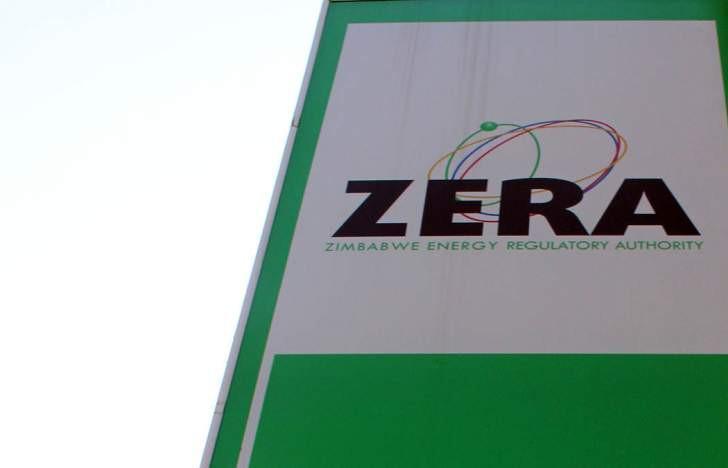News / National
Why fuel prices are high in Zim
12 Nov 2024 at 11:00hrs |
0 Views

The Zimbabwe Energy Regulatory Authority (Zera) has attributed the country's high fuel pump prices to the substantial tax burden and levies applied to petrol and diesel, compared to other countries in the Southern African Development Community (Sadc) region.
Presenting at a two-day media workshop in Bulawayo, Zera's financial analyst, Farai Siwadi, highlighted that taxes and levies account for a significant portion of the fuel cost structure in Zimbabwe. He explained that these taxes contribute US$0.52 per litre for diesel and US$0.54 per litre for petrol, making them some of the highest in the region.
"This is a very common topic of discussion - fuel in Zimbabwe is the most expensive in the region. The high taxes and levies are a major factor contributing to this," Siwadi said. "If you compare our price structure to our regional counterparts, you'll find that our taxes are considerably higher."
Currently, the price per litre of petrol in Zimbabwe is US$1.51, while diesel costs US$1.52. These prices are notably higher than those in other Sadc landlocked countries, including Zambia (US$1.21 for petrol, US$1.12 for diesel), Botswana (US$1.10 for petrol, US$1.12 for diesel), Malawi (US$1.45 for petrol, US$1.57 for diesel), Lesotho (US$1.07 for petrol, US$1.08 for diesel), and Eswatini (US$1.17 for petrol, US$1.22 for diesel).
Siwadi pointed out that the high taxes and levies were compounded by additional costs such as pipeline fees, financing costs, administrative costs, and storage fees. He explained that these costs contribute to the final pump price, with taxes alone making up a significant portion of the price buildup.
"We also have other costs such as the pipeline fee and the financing costs," Siwadi continued. "Once we add those, we move to taxes and levies, which include duties, the carbon tax, the strategic reserve levy, and the petroleum levy. These five factors make up about US$0.54 for diesel and US$0.02 for petrol."
Siwadi also noted that blending costs for petrol, which is blended with ethanol, further contribute to the final price. Distribution costs, which include the margins for dealers and oil companies, also add to the overall cost structure.
While external factors, such as ocean freight, insurance, and global oil price fluctuations, are beyond Zimbabwe's control, Siwadi emphasized that internal costs, such as taxes and administrative fees, are areas where the country could potentially exercise more influence.
The Zimbabwe Coalition on Debt and Development (ZCDA) has previously argued that the high fuel prices are also linked to a government-monopolized market. However, Siwadi's presentation largely focused on the role of taxes and levies as the primary drivers of high fuel costs.
As Zimbabwe continues to grapple with high fuel prices, questions remain about how the government can balance revenue generation from fuel taxes with the need to reduce costs for consumers and businesses.
Presenting at a two-day media workshop in Bulawayo, Zera's financial analyst, Farai Siwadi, highlighted that taxes and levies account for a significant portion of the fuel cost structure in Zimbabwe. He explained that these taxes contribute US$0.52 per litre for diesel and US$0.54 per litre for petrol, making them some of the highest in the region.
"This is a very common topic of discussion - fuel in Zimbabwe is the most expensive in the region. The high taxes and levies are a major factor contributing to this," Siwadi said. "If you compare our price structure to our regional counterparts, you'll find that our taxes are considerably higher."
Currently, the price per litre of petrol in Zimbabwe is US$1.51, while diesel costs US$1.52. These prices are notably higher than those in other Sadc landlocked countries, including Zambia (US$1.21 for petrol, US$1.12 for diesel), Botswana (US$1.10 for petrol, US$1.12 for diesel), Malawi (US$1.45 for petrol, US$1.57 for diesel), Lesotho (US$1.07 for petrol, US$1.08 for diesel), and Eswatini (US$1.17 for petrol, US$1.22 for diesel).
Siwadi pointed out that the high taxes and levies were compounded by additional costs such as pipeline fees, financing costs, administrative costs, and storage fees. He explained that these costs contribute to the final pump price, with taxes alone making up a significant portion of the price buildup.
"We also have other costs such as the pipeline fee and the financing costs," Siwadi continued. "Once we add those, we move to taxes and levies, which include duties, the carbon tax, the strategic reserve levy, and the petroleum levy. These five factors make up about US$0.54 for diesel and US$0.02 for petrol."
Siwadi also noted that blending costs for petrol, which is blended with ethanol, further contribute to the final price. Distribution costs, which include the margins for dealers and oil companies, also add to the overall cost structure.
While external factors, such as ocean freight, insurance, and global oil price fluctuations, are beyond Zimbabwe's control, Siwadi emphasized that internal costs, such as taxes and administrative fees, are areas where the country could potentially exercise more influence.
The Zimbabwe Coalition on Debt and Development (ZCDA) has previously argued that the high fuel prices are also linked to a government-monopolized market. However, Siwadi's presentation largely focused on the role of taxes and levies as the primary drivers of high fuel costs.
As Zimbabwe continues to grapple with high fuel prices, questions remain about how the government can balance revenue generation from fuel taxes with the need to reduce costs for consumers and businesses.
Source - newsday
Join the discussion
Loading comments…





































